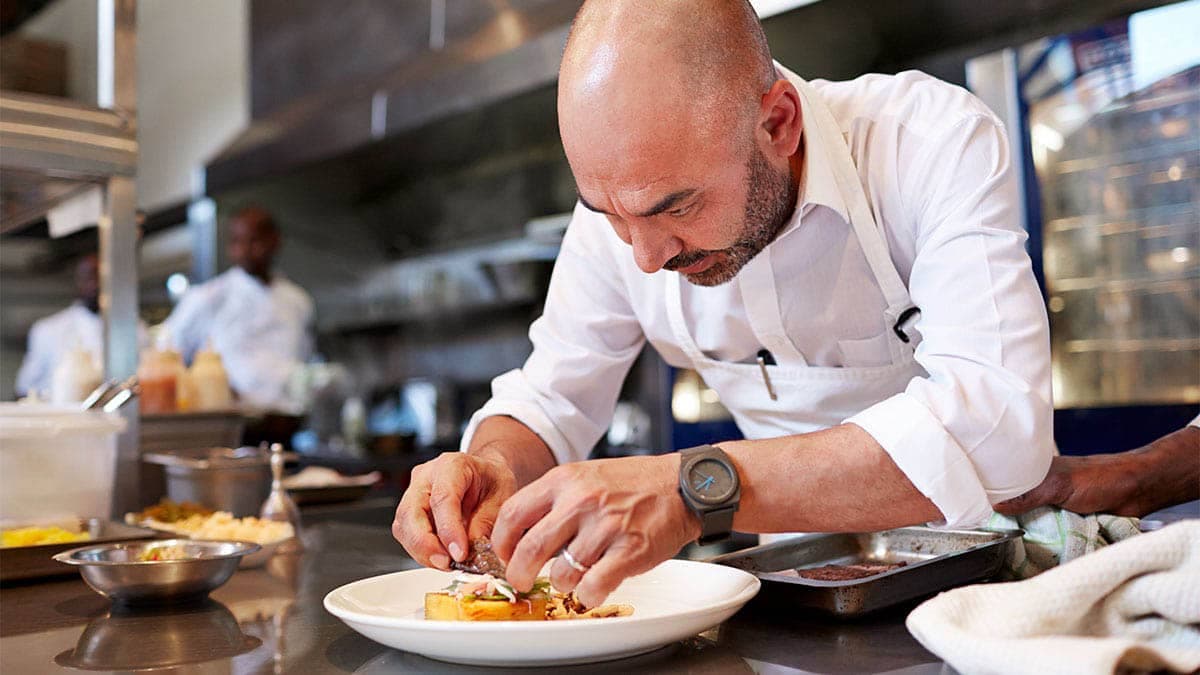In the world of gastronomy, chefs are the master orchestrators, turning ordinary ingredients into extraordinary culinary experiences. Being a chef is not just a profession; it is a passion that requires creativity, skill, and a deep understanding of flavors. In this article, we delve into the captivating world of chefs, exploring their roles, the diverse career paths available, and the skills and qualities that make a great chef.
The Role of a Chef: Creating Culinary Magic
Chefs are not merely cooks; they are artists who transform ingredients into delectable masterpieces. Their responsibilities go beyond cooking and include menu planning, ingredient sourcing, managing the kitchen, and ensuring quality control. An exceptional chef combines technical expertise with creativity to deliver exceptional dining experiences.
Chef Specializations: A Taste for Every Passion
The culinary world offers a diverse range of specializations for aspiring chefs to explore. Here are some popular chef specializations:
a. Executive Chef:
The executive chef is the leader in the kitchen, overseeing the entire culinary operation. They are responsible for menu development, staff management, and maintaining high standards of food quality and presentation.
b. Pastry Chef:
Pastry chefs specialize in the art of creating exquisite desserts and baked goods. They master the delicate balance between precise measurements, flavors, textures, and presentation, resulting in mouthwatering creations that satisfy the sweet tooth.
c. Sous Chef:
Sous chefs work closely with executive chefs, assisting in menu planning, recipe development, and kitchen management. They supervise kitchen staff, ensuring smooth operations and maintaining culinary excellence.
d. Personal Chef:
Personal chefs cater to the culinary needs of individuals or families, creating customized menus and preparing meals in private homes. They provide personalized dining experiences tailored to the unique preferences and dietary requirements of their clients.
e. Research and Development Chef:
Research and development chefs work in the food industry, experimenting with new flavors, ingredients, and techniques. They create innovative recipes, refine existing ones, and contribute to product development.
The Skills and Qualities of a Great Chef
Becoming a successful chef requires a combination of technical skills, creativity, and personal qualities. Here are some essential skills and qualities for aspiring chefs:
a. Culinary Skills:
A solid foundation in culinary techniques and knowledge of ingredients is essential. Chefs must be proficient in food preparation, cooking methods, flavor profiles, and kitchen safety.
b. Creativity and Attention to Detail:
Great chefs possess a flair for creativity, using ingredients in unexpected ways to create unique and visually stunning dishes. Attention to detail is also crucial, as even the smallest element can make a difference.
c. Time Management and Organizational Skills:
The culinary world is fast-paced and demanding. Chefs must excel at managing their time efficiently, multitasking, and prioritizing tasks to ensure smooth kitchen operations.
d. Strong Palate and Knowledge of Flavors:
An understanding of flavor combinations, seasoning, and the ability to discern subtle taste differences is essential for creating harmonious and well-balanced dishes.
e. Adaptability and Resilience:
The culinary industry is ever-evolving, and chefs must adapt to changes, experiment with new techniques, and learn from setbacks. They must remain resilient in the face of challenges and constantly strive for improvement.
The Thriving World of Culinary Arts
The culinary arts industry offers a vibrant and diverse array of job opportunities for aspiring chefs. From working in top-tier restaurants to launching their own catering businesses, chefs can explore various career paths:
a. Fine Dining Restaurants:
Many chefs aspire to work in fine dining establishments, where they have the chance to showcase their creativity and elevate gastronomy to an art form. These establishments often strive for Michelin stars and are known for their exquisite presentation and innovative menus.
b. Hotel and Resort Culinary Operations:
Hotels and resorts offer chefs the opportunity to work in upscale settings, catering to the culinary needs of guests. From managing multiple dining outlets to organizing banquets and special events, hotel chefs can gain broad experience in various culinary specialties.
c. Culinary Education and Consulting:
Experienced chefs often transition into teaching culinary arts or becoming culinary consultants. They impart their knowledge and skills to aspiring chefs, ensuring the next generation is well-equipped for the industry.
d. Food Media and Content Creation:
The rise of food media platforms has created new avenues for chefs to showcase their talents. From hosting cooking shows to writing cookbooks and creating online content, chefs can engage with a wider audience and share their passion for food.
e. Entrepreneurial Ventures:
Driven by their passion and creative vision, some chefs choose to launch their own restaurants, food trucks, or catering businesses. This path allows them to have full control over their culinary direction and establish their unique brand.
Conclusion
Being a chef is a journey filled with passion, creativity, and endless possibilities. Whether you dream of leading a Michelin-starred kitchen, delighting clients as a personal chef, or captivating audiences via food media, the culinary world has an array of paths to explore. By honing culinary skills, embracing creativity, and embodying the qualities of a great chef, individuals can embark on a fulfilling career that brings joy and satisfaction with every dish. So, put on your apron, sharpen those knives, and let your culinary creativity take flight in the captivating world of chefs.

